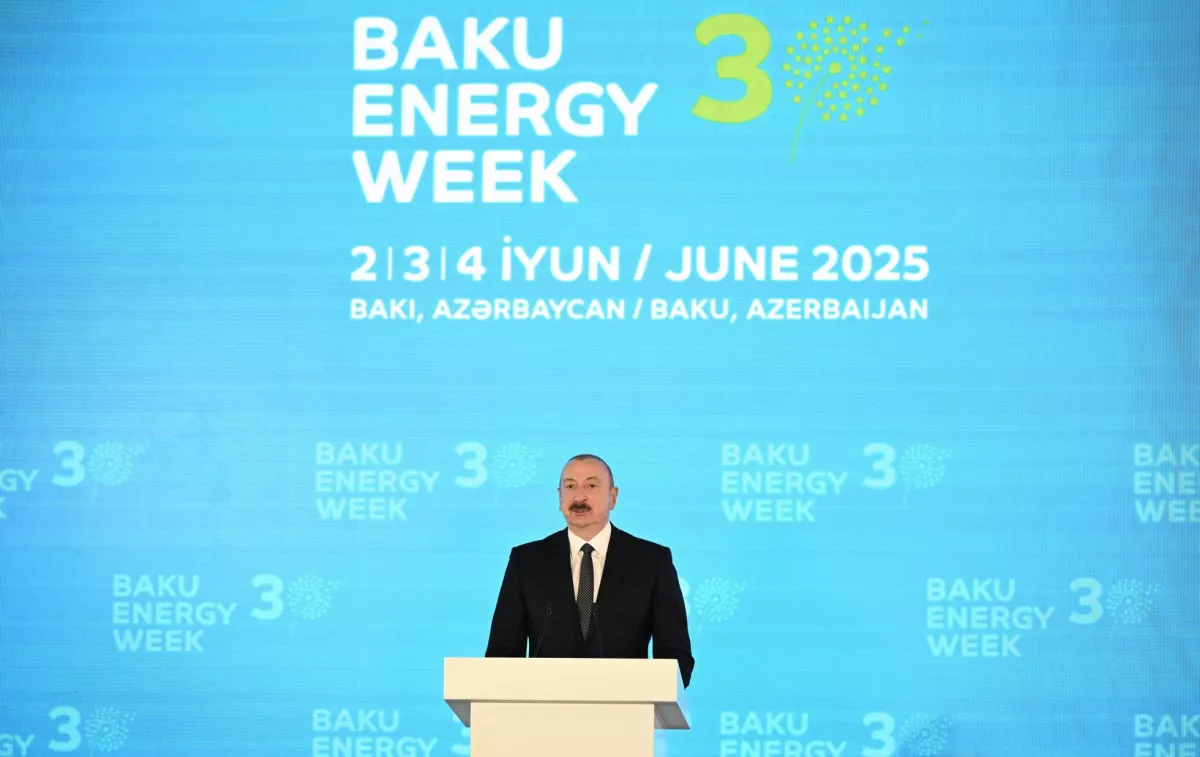Azerbaijan’s oil strategy: decades at the pinnacle of global energy 31 years of the “Contract of the Century”
Today, Azerbaijan marks an important historical milestone — 31 years since the signing of the “Contract of the Century” for the development of the Azeri–Chirag–Gunashli (ACG) oilfield block. Developed many years ago by Azerbaijan’s National Leader Heydar Aliyev, the oil strategy laid out the long-term milestones for the development of Azerbaijan’s energy sector. It is particularly important that the international cooperation enshrined in the “Contract of the Century” remains relevant to this day, as evidenced by the memorandum signed in August 2025 in Washington between SOCAR and ExxonMobil.
It is no coincidence that Azerbaijan celebrates Oil Workers’ Day on September 20 — the very day, 31 years ago, when the signing ceremony of the “Contract of the Century” for the development of offshore oilfields took place. The agreement was concluded between the State Oil Company of Azerbaijan (SOCAR) and a consortium of 11 oil companies representing leading countries of the world — including the United Kingdom, the United States, Russia, Norway, Türkiye, and Saudi Arabia. To implement the contract, the Azerbaijan International Operating Company (AIOC) was established, and in subsequent years, further agreements were signed to develop a number of new fields. As a result, between 2000 and 2020 alone, around $110 billion of investment was attracted into the energy sector.
Since 1994, Azerbaijan has signed more than forty contracts with foreign companies for the development of oil and gas fields both offshore and onshore. Among the most notable undertakings are the two phases of the Shah Deniz gas condensate field, the construction of the Baku–Tbilisi–Ceyhan (BTC) oil pipeline, the South Caucasus Gas Pipeline, and the network of pipelines forming the Southern Gas Corridor (SGC), along with dozens of other energy projects that have already been implemented.
As of the beginning of this year, total investment in the development of the ACG block exceeded $45 billion, while overall oil production had reached more than 4.481 billion barrels by April 2025. Since the commissioning of the Baku–Tbilisi–Ceyhan pipeline in June 2006 and up to the end of the first quarter of 2025, some 4.5 billion barrels of crude oil have been exported to international markets through this route, with oil produced at ACG accounting for more than two-thirds of all shipments. In turn, from the autumn of 1997 to August last year, more than 221 billion cubic metres of associated gas were also extracted from the ACG field.
“As was already mentioned, back in 1994, when the first oil and gas exhibition was held, right after that, Azerbaijan signed a contract with a consortium of international oil companies, later called the Contract of the Century, which actually changed the whole geopolitical and geo-economic situation in the region,” President of Azerbaijan Ilham Aliyev stated this June at the official opening ceremony of the 30th Caspian Oil and Gas Exhibition and Conference.

The head of state emphasised that today, Azerbaijan stands as a country with a stable political system and a steadily developing economy. External debt amounts to less than 7% of GDP, while the nation’s financial reserves exceed external debt by a factor of 14. Equally significant is the social dimension: thanks to the fair distribution of national wealth, the poverty rate has fallen to around 5%. The president also underlined that sweeping reforms are underway, including the pursuit of an ambitious green agenda: “The country, which is rich in oil and gas, is investing together with foreign investors in green energy, which demonstrates our responsibility.”
Reflecting on the significance of the “Contract of the Century,” one cannot overlook its powerful multiplier effect across the national economy. Oil revenues and long-term partnerships with international companies have brought advanced technologies and expertise to Azerbaijan’s energy and transport sectors. Hundreds of local companies have grown into reliable suppliers of services and construction works, directly participating as contractors in extraction, transport, and processing projects in the oil and gas industry.
The rapid expansion of the oil and gas sector has also transformed Azerbaijan’s industrial base. It enabled the domestic production of world-class offshore platforms of the highest quality and complexity, and spurred the development of a modern petrochemical industry. Landmark projects include the commissioning of polymer and methanol plants, a carbamide fertiliser plant, and the large-scale modernisation of the Heydar Aliyev Baku Oil Refinery — all of which have strengthened Azerbaijan’s position as a key player in the global energy market.
The development of the ACG reserves continues successfully, with experts estimating at least 500 million tonnes of untapped oil still in place. The Production Sharing Agreement (PSA), originally signed for 30 years, was extended on September 14, 2017, allowing joint development to continue until 2050.
As part of this renewal, the fifth phase of the project was launched in 2019 under the framework of the so-called second “Contract of the Century.” This phase covers the Azeri Central East (ACE) segment, with an investment of $6 billion and an expected output of over 300 million barrels of oil.

American companies played a pivotal role in launching the “Contract of the Century.” Among the giants involved were Amoco, Exxon, Pennzoil, and Unocal Corporation (later merged into Chevron). In the 1990s, U.S. companies accounted for nearly 47% of all foreign investment in Azerbaijan’s oil production. The leading American engineering and construction company McDermott also made a significant contribution through large-scale contracting works.
U.S. energy companies went on to expand their presence in Azerbaijan’s energy sector. In December 1996, they joined the consortium established to develop the Dan Ulduzu and Ashrafi fields, where Amoco and Unocal together held a majority 55.5% stake.
This rich legacy of Azerbaijan–U.S. partnership in oil production, built over decades, continues to evolve. The agreements signed during President Ilham Aliyev’s visit to Washington in August reaffirm that this cooperation is not only enduring but also expanding into new strategic dimensions.
"The historic documents signed during the visit contribute to bringing Azerbaijan–U.S. relations to a new stage of development and to the level of strategic partnership," Prime Minister Ali Asadov stated at a special government session at the end of August. The prime minister also highlighted the importance of the memorandum of cooperation signed between the State Oil Company of Azerbaijan (SOCAR) and ExxonMobil during the visit, which is seen as a new phase of the partnership initiated under the national oil strategy established 31 years ago with the “Contract of the Century.”
"Azerbaijan expects the discovery of a major oil field with the support of the American company ExxonMobil," Economy Minister Mikayil Jabbarov said at the special government session. “Overall, the memorandum of cooperation will positively influence the development of partnership in the energy sector.” The economy minister also emphasised that Azerbaijan’s energy resources, including its renewable energy potential, make the country an attractive destination for investment.








